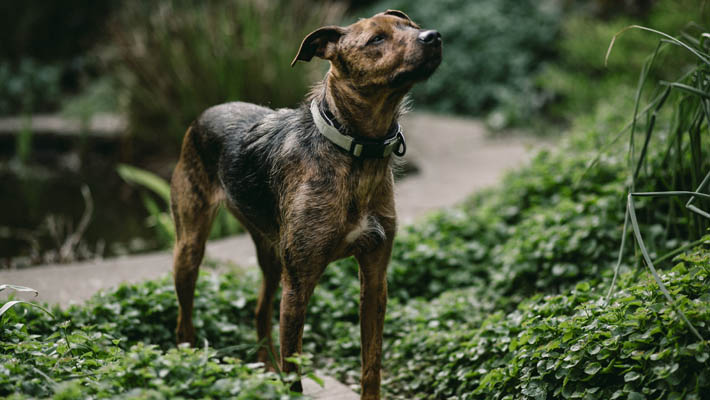
Keeping your Dog Safe During Huntng Season
Protecting Your Dog During Hunting Season
The great outdoors is the perfect place to bond with your dog and exercise at the same time. During hunting season, however, that healthy environment can pose many dangers for your best friend if you come unaware and unprepared. Fortunately, there are some simple precautions that you can take to protect your dog from harm and injury. Preparation Hunting dogs play that role for a small part of the year; for the rest of the time, they are just regular family pets with a knack for occasionally chasing whatever takes their fancy. This period of relative inactivity can take its toll when hunting season rolls around. The sudden increase in the amount of exercise that is required of your dog can be the trigger for a lot of discomfort and pain. First and foremost is the inevitable muscle stiffness and soreness. Just like our muscles protest if we exert ourselves after prolonged rest, so do a dog's. Whereas muscle pain is can be a thorn in the side, a sudden return to exertion can also have a worse effect - injury. Ease your dog into the season by working him up to the level of exercise required. Friendly Fire
Every year, people and hunting dogs are hurt because of mistaken identity. Just like you wear a bright vest to clearly identify yourself to hunters in the area, your dog should have one too. Buying reflective or LED dog collars might be a good investment, particularly because wooded areas tend to be dark even in daylight hours. All these measures help to minimize
Friendly Fire
Every year, people and hunting dogs are hurt because of mistaken identity. Just like you wear a bright vest to clearly identify yourself to hunters in the area, your dog should have one too. Buying reflective or LED dog collars might be a good investment, particularly because wooded areas tend to be dark even in daylight hours. All these measures help to minimize the possibility of an accidental shooting.
Nutrition
Along with an exercise regimen that works all parts of the body, supplement his diet with good protein from active dog food to feed the muscles and prevent injury. When actually out on a hunt, it is better to give small meals spread out across the day rather than huge portions fewer times. This ensures a constant stream of carbs for energy and protein for muscle repair without making the dog feel bloated.
Hydration
The season and level of activity a canine enjoys also affects its hydration requirements. Ensure that your dog has continuous access to water at home before the hunt and also in the field during the outing.
Local Dangers
Forested areas and pristine nature might be gorgeous but they can also hide a host of native critters that may lash out in fear when surprised by you or your dog. Investigate the area and speak to locals and those who have hunted there before to identify what dangers may lie in wait amongst the tall grasses. Snakes and porcupines pose a particular danger in such environments. Man-made hazards like traps and barbed wire are another potential danger that can injure an enthusiastic animal rushing through the undergrowth. As before, those familiar with the area will be able to give you the best pointers on what to look out for and which areas to avoid.
In Case of Emergency
Always carry a first aid kit for your dog when engaging in activities that carry an inherently higher risk of injury. A good basic kit would contain: rubber gloves, bandages, cold compress, antiseptic, and eye wash. Add components as suited to the area and as recommended by your vet.
the possibility of an accidental shooting.
Nutrition
Along with an exercise regimen that works all parts of the body, supplement his diet with good protein from active dog food to feed the muscles and prevent injury. When actually out on a hunt, it is better to give small meals spread out across the day rather than huge portions fewer times. This ensures a constant stream of carbs for energy and protein for muscle repair without making the dog feel bloated.
Hydration
The season and level of activity a canine enjoys also affects its hydration requirements. Ensure that your dog has continuous access to water at home before the hunt and also in the field during the outing.
Local Dangers
Forested areas and pristine nature might be gorgeous but they can also hide a host of native critters that may lash out in fear when surprised by you or your dog. Investigate the area and speak to locals and those who have hunted there before to identify what dangers may lie in wait amongst the tall grasses. Snakes and porcupines pose a particular danger in such environments. Man-made hazards like traps and barbed wire are another potential danger that can injure an enthusiastic animal rushing through the undergrowth. As before, those familiar with the area will be able to give you the best pointers on what to look out for and which areas to avoid.
In Case of Emergency
Always carry a first aid kit for your dog when engaging in activities that carry an inherently higher risk of injury. A good basic kit would contain: rubber gloves, bandages, cold compress, antiseptic, and eye wash. Add components as suited to the area and as recommended by your vet.
 Hunter Dunbar
Author Bio: Hunter is an avid Outdoorsman and Outdoor Enthusiast that has hunted both nationally and internationally as well as trained several Gun Dogs for upland and waterfowl hunting. Hunter has the knowledge and experience on a wide variety of topics and offers up some of the best information and reviews available on the web.
Hunter Dunbar
Author Bio: Hunter is an avid Outdoorsman and Outdoor Enthusiast that has hunted both nationally and internationally as well as trained several Gun Dogs for upland and waterfowl hunting. Hunter has the knowledge and experience on a wide variety of topics and offers up some of the best information and reviews available on the web.
 At HuntEmUp.com, we know sporting dogs. From the time they’re a puppy, through their senior years, we'll keep you informed on the latest news and information. For more information on Training, Preparing and Caring for your Dogs, read our Hunting and Sporting Dog blog.
At HuntEmUp.com, we know sporting dogs. From the time they’re a puppy, through their senior years, we'll keep you informed on the latest news and information. For more information on Training, Preparing and Caring for your Dogs, read our Hunting and Sporting Dog blog.
Join Our HuntEmUp.com Customer Club Today!
Join Our Customer Club and be entered in our Monthly Giveaway and a chance to Win products and more!
Join for FREE Today - Click Below to Get Started!

